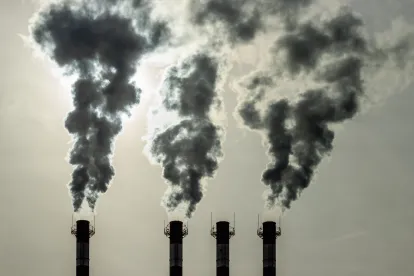While the US Department of Justice (DOJ) has sought to return Supplemental Environmental Projects (SEPs) to the quiver of tools, it can use to resolve environmental claims, some stakeholders, including the US Chamber of Commerce, Republican lawmakers, and Republican state Attorney’s General have filed comments opposing the return of SEPs. Below, we briefly assess their comments – and why they matter to the regulated community.
Background
SEPs have long been used by local, state, and federal regulators as part of environmental settlements. SEPs allow a portion of a civil penalty to be mitigated, in exchange for the settling defendant agreeing to fund an environmentally beneficial project, typically with some nexus to the underlying violations that are being resolved. When used as a remedy, SEPs allow communities who have allegedly suffered from environmental harms to more quickly benefit from any settlement. We previously discussed the benefits of SEPs here.
Late in the Trump Administration, DOJ enacted a formal rule banning SEPs as part of settlement agreements in environmental enforcement cases, under the theory that SEPs violate the Miscellaneous Receipts Act.
That rulemaking was preceded by the issuance of memoranda from Jeffery Bossert Clark, then the Assistant Attorney General, for the Environment and Natural Resources Division. Prior to Clark’s memoranda, SEPs had been a settlement tool for over three decades and were highly favored by government enforcement teams, settling defendants, and local communities that benefit from SEPs.
The Biden-led DOJ withdrew the Clark memoranda shortly after the change in administration, and has proposed the Interim Final Rule to replace the SEP-prohibiting rule of the Trump Administration and formally complete the process of reinstating SEPs as a useful settlement tool. The aforementioned public comments opposing the proposed Interim Final Rule were filed within the public comment period, which closed on July 11.
Pros and Cons of SEPs
The Chamber’s comments opposing the Interim Final Rule argue that SEPs should not be used because they “divert funds away from the US Treasury and into the hands of non-governmental advocacy groups and other third parties,” thus violating Congress’s appropriations authorities. The Chamber seeks to continue the prohibition on SEPs, arguing that whether a SEP supports “worthy causes or programs” is irrelevant, as directing settlement funds to third-party organizations is “arguably illegal.” These arguments largely echo those advanced in the Clark memoranda issued during the Trump Administration.
Other commenters have weighed in with the support of SEPs, including state environmental agency directors, the Environmental Council of the States, the National Association of Clean Air Agencies, and the Southern Environmental Enforcement. Notably, the Interim Final Rule was issued on the same day as DOJ issued its comprehensive environmental justice strategy (which we discussed here), and SEPs are often the quickest way to deliver benefits in real-time to communities alleged to be environmentally harmed.
Next Steps
At present, DOJ will consider the various comments received before finalizing the interim rule, but it appears that it will stay the course on which it has embarked. We will keep an eye out for litigation related to this rule.



 />i
/>i

